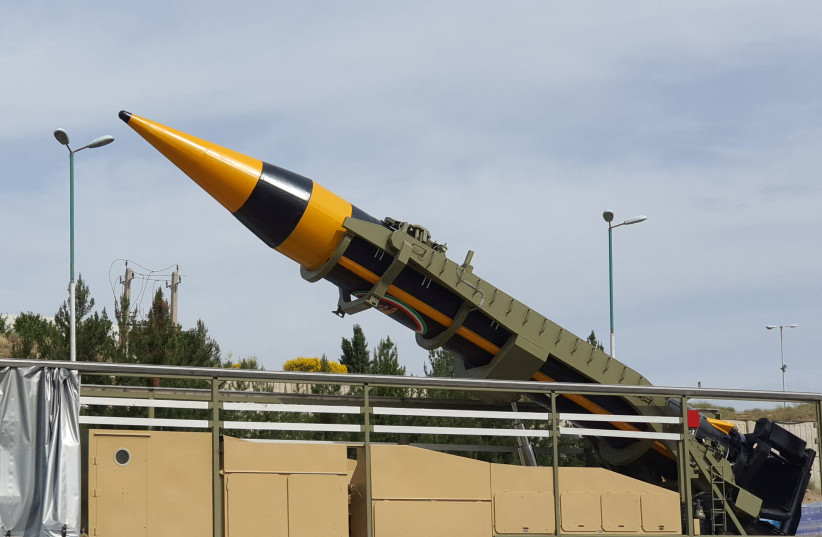France, Germany, and the United Kingdom – known as the E3 – plan to maintain sanctions on Iranian ballistic missiles and drones even though they are set to expire in October under the 2015 Iran nuclear deal.
Among the key elements of the Joint Comprehensive Plan of Action, known as the JCPOA, were the “sunset clauses” and the “snapback” mechanism, serving as the carrot and stick for Iran to dial back its nuclear program and keep it that way, as stipulated by the agreement.
The sunset clauses meant that starting in 2020, UN sanctions on arms sectors in Iran would be gradually lifted. However, if Iran violates the JCPOA, any party to the deal can activate the snapback mechanism, reinstating all pre-agreement sanctions on the Islamic Republic. Snapback is veto-proof, such that any party to the JCPOA can invoke it and the others must oblige.
UN is meant to lift ban on Iran's development, production of missiles
In October, the UN is meant to lift a ban on Iran’s development and production of ballistic missiles capable of delivering nuclear weapons, and on its import and export of missile-related technology, including missiles and drones with a range of 300 km. or more. In addition, Iran’s parliament is meant to grant the International Atomic Energy Agency more access to its nuclear facilities, and the EU is required to lift remaining sanctions on Iran’s nuclear program.

A diplomatic source told The Jerusalem Post that the E3’s plan is to maintain sanctions on Iran’s ballistic missile program as well as “other coercive measures” – likely the EU nuclear sanctions, though the source declined to specify – without imposing new sanctions or activating snapback. The European parties to the JCPOA regard this as remaining within the framework of the agreement and the related UN Security Council Resolution 2231.
The Guardian, which first reported on the matter, presented maintaining sanctions as “plans to breach the 2015 Iran nuclear deal.” In fact, it is Iran that began breaching the JCPOA years ago with impunity, as the other countries in the deal treated snapback like a dead letter, fearing a total end to the agreement, even as it became less and less relevant.
The US tried to snap back sanctions on Iran in late 2020, in light of Tehran’s development of ballistic missiles. Then-secretary of state Mike Pompeo also cited Iran’s malicious and destabilizing actions via its proxies around the world, though that was beyond the scope of the JCPOA. The Trump administration argued that, while it had pulled out of the JCPOA two years prior, snapback is part of UNSCR 2231, which the US did not leave. However, the other parties to the Iran deal rejected the supposedly veto-proof snapback sanctions.
Soon after, Iran began violating the core elements of the deal, by enriching and stockpiling uranium far beyond the JCPOA’s restrictions, and has already enriched uranium to over 60% purity. The Islamic Republic kept the IAEA from inspecting its nuclear facilities at various points. Tehran continued developing and testing ballistic missiles. Still, no country invoked snapback.
It appears that Tehran’s export of drones to Russia for use in its war on Ukraine, in direct contravention of UNSC sanctions, brought the Iranian threat close enough to home to rouse European countries to action.
The EU and UK had already sanctioned many individuals related to Iran’s weapons industry, and now they’re making sure that they keep up sanctions related to the specific action Iran is currently taking vis-à-vis Russia.
The problem is that this is very clearly a declarative move that will have little effect in reality. UN sanctions, encompassing the entire world, were in place when Iran started exporting drones to Russia.
Why would making sure those sanctions still apply in Europe, but not beyond the continent, change the Islamic Republic’s behavior or even meaningfully punish them for it?
Europe’s concern for maintaining the JCPOA framework is also ludicrous, in light of how little regard, if any, Iran still has for it.
Only a full array of sanctions will show Tehran that the West means business and will not accept violations of missile and nuclear restrictions. It is long past time for the E3 to activate the snapback mechanism.
